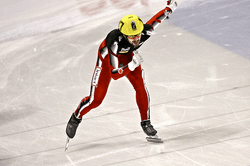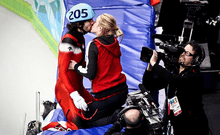Charles Hamelin
 | ||||||||||||||||||||||||||||||||||||||||||||||||||||||||||||||||||||||||||||||||||||||||||||||||||||||||||||||||||||||||||||||||||||||||||||||||||||||||||||||||||||
| Personal information | ||||||||||||||||||||||||||||||||||||||||||||||||||||||||||||||||||||||||||||||||||||||||||||||||||||||||||||||||||||||||||||||||||||||||||||||||||||||||||||||||||||
|---|---|---|---|---|---|---|---|---|---|---|---|---|---|---|---|---|---|---|---|---|---|---|---|---|---|---|---|---|---|---|---|---|---|---|---|---|---|---|---|---|---|---|---|---|---|---|---|---|---|---|---|---|---|---|---|---|---|---|---|---|---|---|---|---|---|---|---|---|---|---|---|---|---|---|---|---|---|---|---|---|---|---|---|---|---|---|---|---|---|---|---|---|---|---|---|---|---|---|---|---|---|---|---|---|---|---|---|---|---|---|---|---|---|---|---|---|---|---|---|---|---|---|---|---|---|---|---|---|---|---|---|---|---|---|---|---|---|---|---|---|---|---|---|---|---|---|---|---|---|---|---|---|---|---|---|---|---|---|---|---|---|---|---|---|
| Born |
April 14, 1984 Lévis, Quebec, Canada | |||||||||||||||||||||||||||||||||||||||||||||||||||||||||||||||||||||||||||||||||||||||||||||||||||||||||||||||||||||||||||||||||||||||||||||||||||||||||||||||||||
| Height | 1.75 m (5 ft 9 in) | |||||||||||||||||||||||||||||||||||||||||||||||||||||||||||||||||||||||||||||||||||||||||||||||||||||||||||||||||||||||||||||||||||||||||||||||||||||||||||||||||||
| Weight | 71 kg (157 lb; 11.2 st) | |||||||||||||||||||||||||||||||||||||||||||||||||||||||||||||||||||||||||||||||||||||||||||||||||||||||||||||||||||||||||||||||||||||||||||||||||||||||||||||||||||
| Sport | ||||||||||||||||||||||||||||||||||||||||||||||||||||||||||||||||||||||||||||||||||||||||||||||||||||||||||||||||||||||||||||||||||||||||||||||||||||||||||||||||||||
| Country |
| |||||||||||||||||||||||||||||||||||||||||||||||||||||||||||||||||||||||||||||||||||||||||||||||||||||||||||||||||||||||||||||||||||||||||||||||||||||||||||||||||||
| Sport | Speed skating | |||||||||||||||||||||||||||||||||||||||||||||||||||||||||||||||||||||||||||||||||||||||||||||||||||||||||||||||||||||||||||||||||||||||||||||||||||||||||||||||||||
| Achievements and titles | ||||||||||||||||||||||||||||||||||||||||||||||||||||||||||||||||||||||||||||||||||||||||||||||||||||||||||||||||||||||||||||||||||||||||||||||||||||||||||||||||||||
| Personal best(s) |
500 m: 40.950 (2007) 1000 m: 1:23.454 (2009) 1500 m: 2:09.098 (2011) 3000 m: 4:38.905 (2002) | |||||||||||||||||||||||||||||||||||||||||||||||||||||||||||||||||||||||||||||||||||||||||||||||||||||||||||||||||||||||||||||||||||||||||||||||||||||||||||||||||||
Medal record
| ||||||||||||||||||||||||||||||||||||||||||||||||||||||||||||||||||||||||||||||||||||||||||||||||||||||||||||||||||||||||||||||||||||||||||||||||||||||||||||||||||||
Charles Hamelin (born 14 April 1984) is a Canadian short track speed skater from Sainte-Julie, Quebec. Hamelin is a 4-time Olympic medalist having won 3 gold and 1 silver during the 2006, 2010 and 2014 Winter Olympics.[1] He is also a 2-time world champion over the 500 m distance, having won those championships in 2007 and 2009.
Hamelin broke into success early at the 2003 World Junior Short Track Championships where he won silver medals in the 500 m and the 1500 m races, following up with a bronze in the 5000 m relay. He built on this success at 2005 World Championships, there he won a gold in the 5000 m relay and a silver in the 500 m. His success continued at the worlds by winning gold in the 3000 m, gold in the 5000 m relay and bronze in the 1000 m at the 2006 World Championships. He finished 4th place at the 2006 Winter Olympics in the 1500 m event but received a silver medal as part of the men's 5000 m relay squad. Hamelin is the former world record holder in the 1000 m.[2]
Career
Junior accomplishments
Hamelin made his debut at the world junior championships in 2002, finishing 4th in the 500 m and helping the relay team to a silver medal. During the next World Junior Championships in 2003, he had his breakout year finishing second in the 500 m, second in the 1500 m, 4th in the 1000 m, 5th in the super 1500 m, and then helping the relay team to a bronze in the 5000 m relay. Because of his accomplishments in 2003 he finished 4th overall at the world junior championships. He was seemingly following the footsteps in a long line of accomplished French-Canadian short track speedskaters like Marc Gagnon and Éric Bédard.
2006 Winter Olympics
Leading up to the 2006 Winter Olympics Hamelin made his World Cup debut in the 2003–2004 season his junior career. His main role on the team at that time was on the relay team which finished the season second overall. Going into the 2004 World Championships, the Canadian Men's relay team was considered one of the favourites but only managed a fourth-place finish.
The 2004–2005 season was a breakout year for Hamelin. This was the first year that he skated every event in the World Cup. He finished third overall in the 500 m, 4th in the 1000 m, 5th in the 1500 m, and 5th overall on the season. He continued to skate on the relay team which finished 1st in the final standings. The real success of his season would come at the 2005 World Championships. He managed a silver in the 500 m and two 4th-place finishes in the 1000 m and 3000 m. This allowed him to finish fourth overall in the standings.[3]
During the 2006 Winter Olympics, Hamelin managed to qualify for the finals of the 1500 m. In the last lap and a half, he was comfortably in third place before being passed by two Chinese skaters. Although one of the Chinese skaters was disqualified, he still only finished a disappointing fourth. In the relay the Canadian team and Korean team traded the lead back and forth throughout the race but the Canadians lost the lead on the last turn but still managed to win silver. The silver medal on the relay was his first Olympic medal in his career.[4]
Following the 2006 Olympics Hamelin won the gold medal in the 3000 m at the 2006 Championships.[5] Hamelin would go on to become the 500 m world champion in 2007, over the next 3 years this would soon be his strongest event.[5] He captured silver at the worlds in 2008 and in 2009 he once again became the 500 m world champion.
2010 Winter Olympics
Hamelin competed in all four events and was a medal favourite in all of the 500, 1000, 1500, and 5000 metre relay.[6] Going into the Olympics, he was the reigning 500 m world champion and reigning World Cup champion.[5] As such Hamelin was the gold medal favourite going into the 2010 Games in his home country.[5]
He began the 2010 Olympics in the second 1500 m heat, there Hamelin placed second by 0.001 of a second to China's Liang Wenhao. Due to the fact he only placed second in the heats Hamelin was drawn into a tough group for the semifinals, needing to beat one of the two favourites, Lee Jung-Su or Apolo Ohno, to qualify for the final. Hamelin was in second for much of the race with Jung-Su in the lead, but on the lap last was passed by Ohno and finished third. Only the top two qualified for the A-Final and Hamelin was thus relegated to the B-Final where he finished in first place. When asked about the race Hamelin said "It was a really tough field, and I'm not disappointed with the races I had . . . I'll sleep well tonight".[7]

During the 1000 m heats, Hamelin placed first, the result duplicating into the quarterfinals. In the semifinals, Hamelin placed second behind Apolo Ohno, and was nearly pushed by Korea's Sung Si-Bak, who trailed him by 0.006 seconds, and avoided a disqualification. The final race, which held five skaters, included his younger brother. For three-quarters of the race, he stood in first position in front of François Hamelin and Apolo Ohno, only to be surpassed by Korea's Lee Ho-Suk in the sixth lap. Hamelin fell into third on the following lap, unable to sustain the high speeds much longer. The final lap saw Ohno move to third, leaving Charles and François in fourth and fifth, respectively.[8] During the race the crowd at the Pacific Coliseum was cheering so loudly during the 1,000 m final that Hamelin felt an overwhelming sense of pride like never before, "It was amazing", he said.[9] Despite the amazing crowd support, Hamelin remained disappointed as he had gone to the Olympics with a mind to win multiple medals.
Next up for Hamelin was his best and most promising event, the 500 m race, Hamelin took the gold medal, with teammate François-Louis Tremblay winning the bronze. It was a close race as the world record holder Korea's Sung Si-Bak was in the lead until a slip in the final corner, which allowed Hamelin to pass to finish first. The same night, the Canadian team won the gold in the 5000 m relay. Hamelin shared that gold with his brother François, as well as Tremblay, Olivier Jean and Guillaume Bastille.[10] Of his final and relieving success on the last day of short track at the Olympics, Hamelin said that "They will be going crazy in Quebec, they will be going crazy in Montreal, party all night. I got two gold medals in 30 minutes and it's incredible."[11]
Road to Sochi 2014
Following the Olympics, Hamelin attended the 2010 World Championships that had to be considered a disappointment for him as he failed to medal in any event. Hamelin did succeed in winning a silver at the 2010 World Team Championships.
Prior to going into the 2010–11 season Hamelin said he was using the year to focus on new techniques for Sochi 2014, while not worrying about winning as much during the current season. Hamelin specifically said that "My goal is to try new strategies to make myself more dangerous for 2014...Now it's not to win medals, but to work on things that are difficult mentally — to put myself in situations where I'm not always in control, so that even if I'm last, I won't panic and do stupid things."[12] Hamelin was mostly focusing on trying to medal in the longer distances, though he has been dominant in the 500 m the South Koreans have continued to own the longer distances, something Hamelin hoped to change. Despite a quiet year on the World Cup, Hamelin finished the 2011 World Championships with a gold in the relay and three silvers, including a second place overall finish.[13] These medals saw an achievement in Hamelin's preseason goals of finding ways to win podium positions in the longer distances again.
Hamelin put up decent results through the 2012 season despite several nagging injuries and carried that success into the World Championships. There he won a silver medal in the 500 m trailing teammate Jean who won the gold. He went on to win the bronze in the 1,000 m after being pushed by a Chinese skater. Hamelin was injured in the fall and did not compete in the men's relay final, but still won gold for his earlier participation in the semi's.[14]
Return to Olympic gold
At Sochi 2014, Hamelin reached the final of the 1500m while his brother made the B final of the same event. He started the race and pushed to the front of the seven-man pack and retained that lead for most of the race. Towards the end of the race, Hamelin's lead was challenged by both China's Han Tianyu and Russia's Viktor Ahn but Hamelin passed Han and held on to win the gold medal as Canada's second gold medal of the Sochi 2014 Games. The 1,500 m was oft quoted as a weakness for Hamelin and the Canadians. He was proud of the gold in the event saying "It is the best I can dream of, coming in the Olympics and having that gold in the 1,500 metre. We always said in the last few years that it was our weakness, but I really worked hard to prove everyone wrong and I think today was the day."[15]
Personal
Short track is a family affair for Hamelin, his brother François Hamelin is a fellow Olympian and national short track member. The current director of the national short track team is his father, Yves Hamelin. Hamelin made Hello Canada's 50 most beautiful Canadians list in 2010, along with his girlfriend, fellow speed skater and Olympian Marianne St-Gelais.[16]
References
- ↑ Dan Robson (28 February 2010). "Canada wins 5 medals in short-track". CBC News. Retrieved 2010-02-28.
- ↑ "Current Short Track Speed Skating World Records" (PDF). Retrieved 2010-02-28.
- ↑ "Skate Canada Profile". Retrieved 2010-02-14.
- ↑ Dan Robson (13 January 2010). "Hamelin racing for Canada's first gold". CBC News. Retrieved 2015-10-31.
- 1 2 3 4 Chidley-Hill, John (2010-01-04). "Hamelins are 1st family of speedskating". CBC Sports. Retrieved 2015-10-31.
- ↑ Mason, Brock (2009-12-17). "Canadians' expectations grow as Olympics near". CBC Sports. Retrieved 2015-10-31.
- ↑ Sean Gordon (13 February 2010). "Lee wins gold on a razor's edge". CTV News. Retrieved 2010-02-15.
- ↑ Men's 1000 m results – Vancouver 2010 Winter Olympics
- ↑ "Canada makes it a 3-medal day in short track". Canwest News Service. 2010-02-22. Retrieved 2010-11-09.
- ↑ Lukas, Jennifer (2010-02-26). "Canada makes it a 3-medal day in short track". CTV Olympics. Retrieved 2010-02-26.
- ↑ "Canada sees double, Chinese sweep". Reuters. 2010-02-27. Retrieved 2010-11-09.
- ↑ Brandon Hicks (4 November 2010). "Short-track team loads up for new Olympic cycle". CBC Sports. Retrieved 2010-11-08.
- ↑ "Charles Hamelin wins silver in 1,500-metres at worlds". CBC Sports. March 11, 2011.
- ↑ "Maltais wins 3 medals, Canada takes 7 overall at short-track speedskating championships". Toronto Star. March 11, 2012. Retrieved March 19, 2012.
- ↑ "Charles Hamelin wins gold in 1,500-metre short track". CBC Sports. February 10, 2014.
- ↑ "Fresh faces make Hello Canada's most beautiful list". CTV. 13 May 2010. Retrieved 2010-05-29.
External links
| Wikimedia Commons has media related to Charles Hamelin. |
